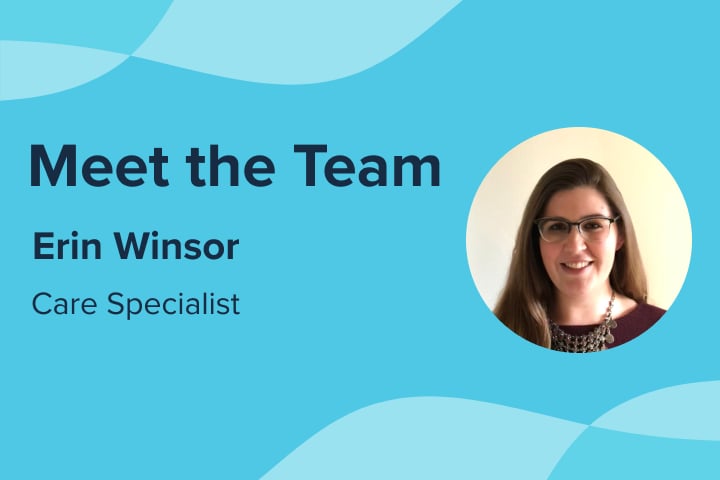A growing number of employees are overseeing the care of senior family members. In fact, nearly one in five workers in the U.S. are caregivers for ill, elderly, or special-needs adults, and spend an average of 24 hours a week providing care.
Unfortunately, 79% of employers are either not offering elder care benefits or are not communicating about such benefits. These are benefits that are not only much-needed, but could help boost an organization’s diversity.
Care Specialists is an employee benefit that can help by providing members with 24/7 access to expert elder care advice. With the assistance of a Care Specialist, members are able to navigate major decisions in elder care—including health insurance, mental and physical health, and even family dynamics.
Erin Winsor holds a master’s degree in social work (MSW). She joined Care.com more than four years ago as a Care Specialist specializing in senior care.
“As someone who has worked with the senior population before, it was Care’s mission as a whole that originally drew me to the company,” said Winsor. “It was important for me to find an organization that was putting in the work to bring awareness to the importance of adult care and how this impacts families.”
The impact of offering elder care benefits
According to Winsor, there’s a lot of gatekeeping of information in the elder care industry—and access to resources is challenging. She and her team assist members by acting as a liaison to that information.
Because elder care needs can change so rapidly, Care Specialists typically have two to four phone calls with a member to discuss different topics that can range from hospitalization to discharge from a rehab facility. If circumstances change, additional calls are often needed, making this a long-term partnership between the Care Specialist and the member.
Juggling work and caregiving is challenging even in a best-case scenario. This was certainly the case for one member Winsor was assisting, who was grappling with a situation in which a loved one was nearing the end of their life and living in the member’s home.
Caring for the loved one at home was no longer feasible. This was very stressful for the member and their family, who were overwhelmed trying to research their options, as well as dealing with the emotions that come with such a big decision.
As a conduit to difficult-to-access information, Winsor was able to provide the family with relevant resources. “We worked through the emotions that come with a decision like that and explored resources that would be helpful for elder care,” said Winsor.
“Ultimately, we determined that having that loved one move to a hospice home, a home where someone can relocate to get hospice end-of-life care, was the best scenario.”
Offering elder care benefits increases productivity and retention
A growing number of companies are taking note of the demand for elder care, with 51% of those surveyed for our 2022 report The Future of Benefits saying they plan to offer more elder care benefits. It’s good business too, with 86% of employers saying that elder care benefits have a positive impact on talent retention and recruitment.
Understandably, employees have a hard time focusing at work when they’re stressed out and trying to navigate care options for their older loved ones. Providing elder care for your team, such as access to Care Specialists, can make a significant impact on their lives—boosting their productivity, and giving them some much-needed peace of mind.







